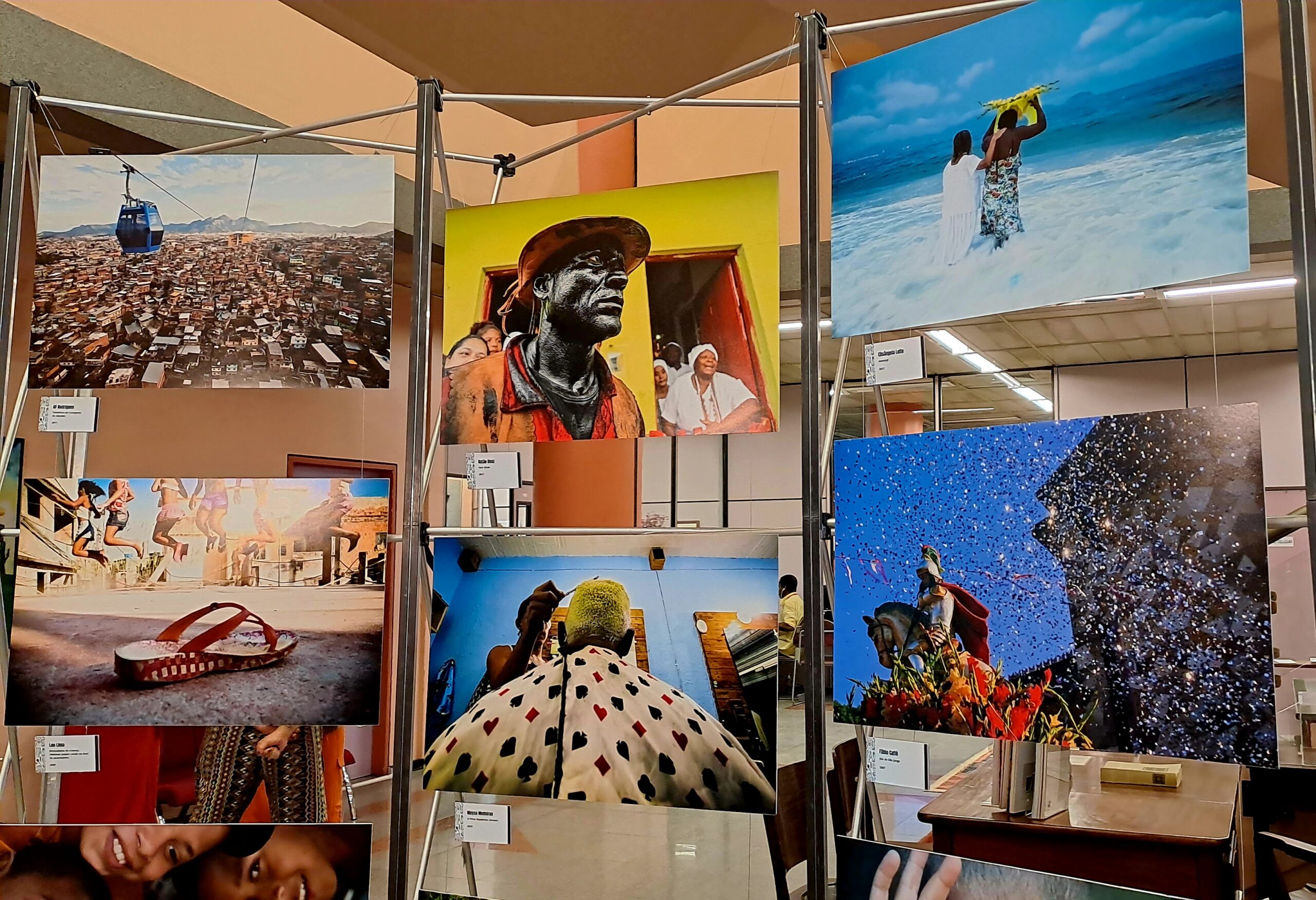
The event Marielle Lives On! Favelas Rebuilding the Country was held by the Marielle Franco Favelas Dictionary in partnership with the Institute of Scientific and Technological Communication and Information in Health (ICICT) of the Oswaldo Cruz Foundation (Fiocruz) at its Manguinhos Library. Among those who attended were activists, favela residents, and people committed to the memory of the councilwoman who was a victim of political femicide five years ago. On March 13, the day before the half-decade mark since her assassination, the gathering sought to reflect on Marielle’s legislative legacy and highlight her policies in favor of Rio’s most vulnerable.
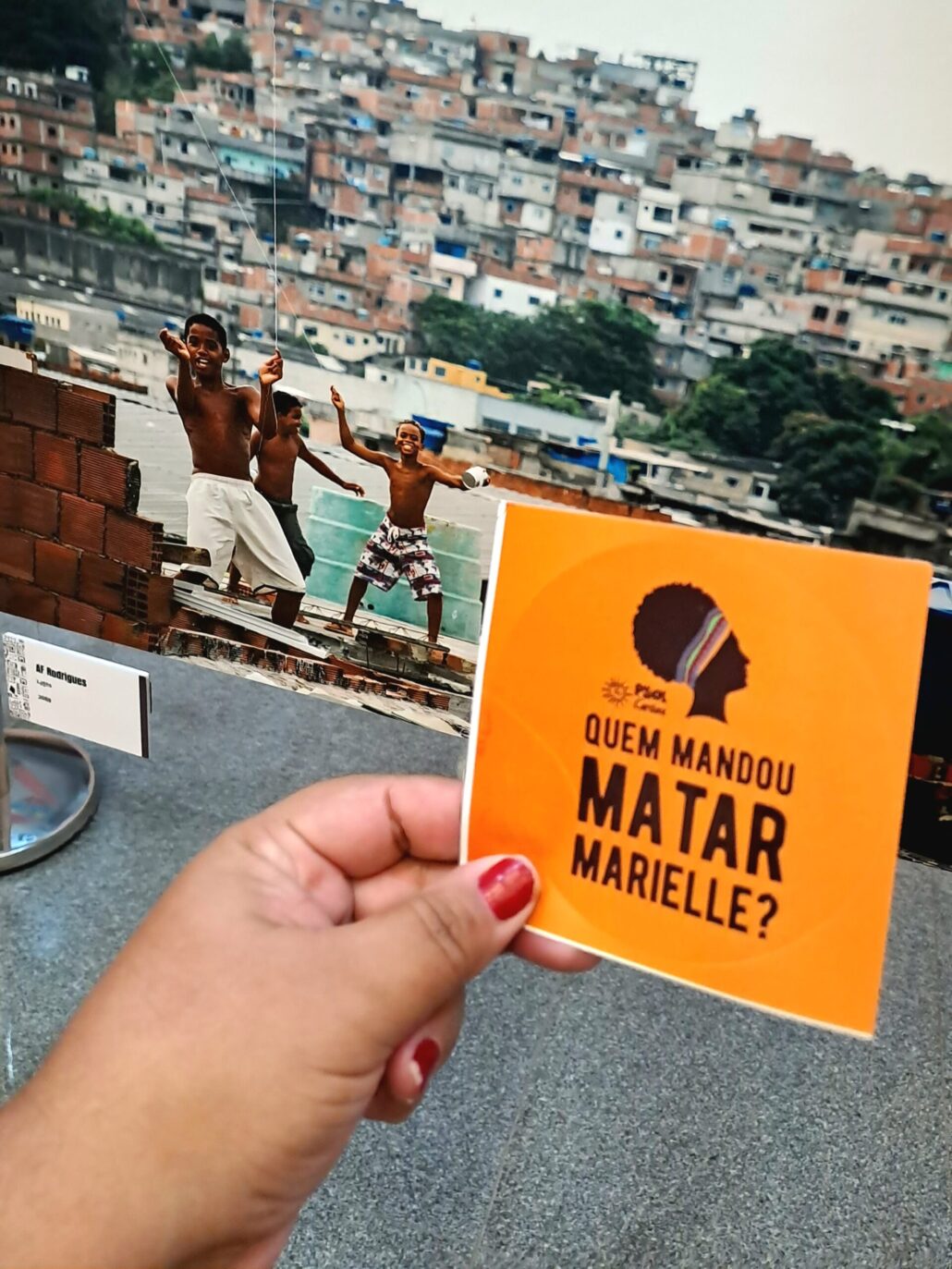
As soon as they arrived, visitors entered the exhibition Other Marés, curated by Dante Gastaldoni, with “visual testimonials of the peripheries, here understood in their broadest sense… Seen this way, from the inside out, and permeated with connection and affection, favelas and traditional peoples are shown through the power of their art and the struggle of their people to survive with their dignity intact… Hope is emerging that we are in a new Maré, which will sweep away inequalities and sow the seeds of utopia.”
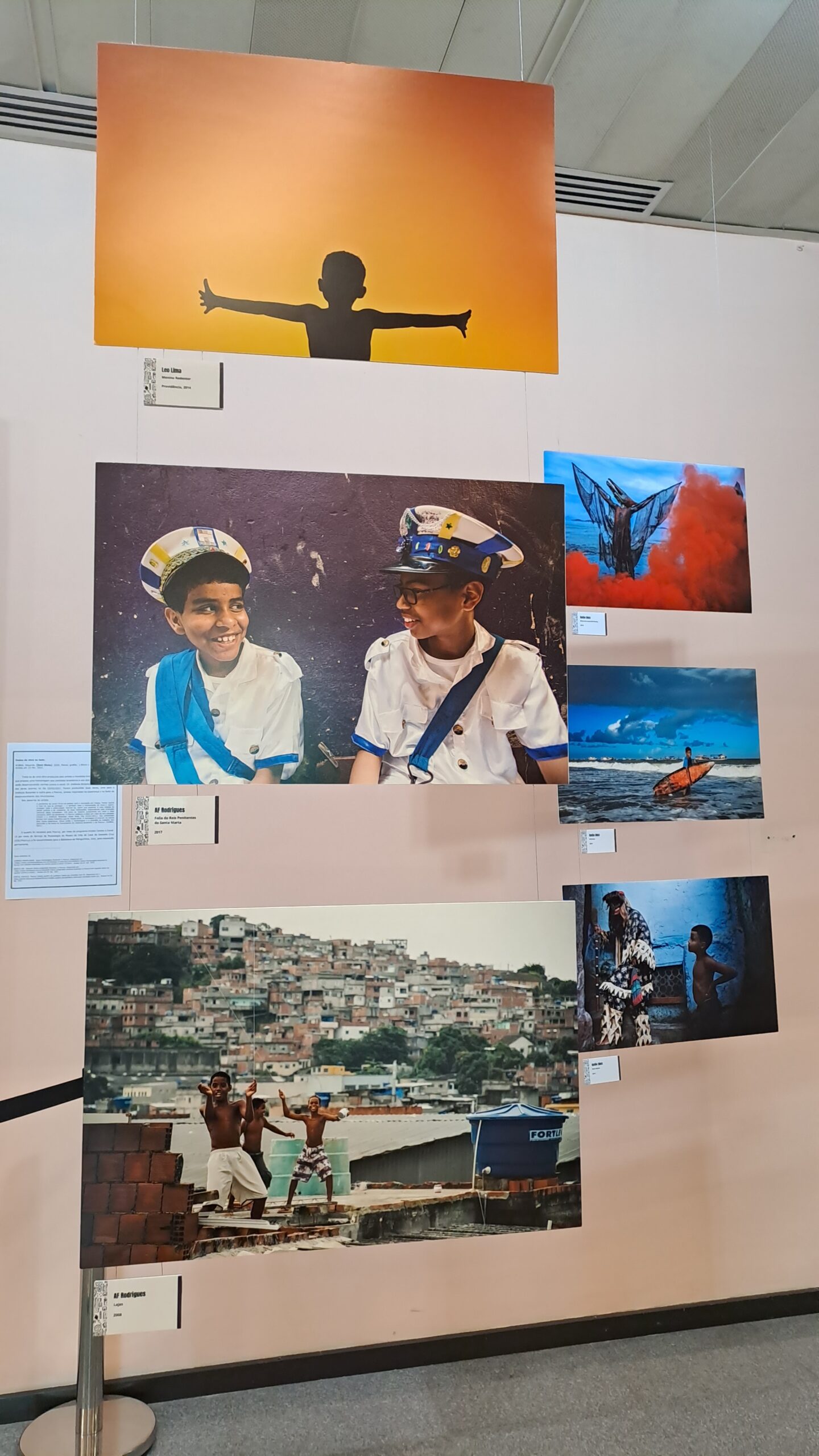
The event proceeded with a video screening of family members, grassroots communicators, and activists reflecting on Marielle Franco’s legacy and paying homage to both the hugely representative political figure and the great woman, remembered by her friends for her generosity, sense of justice, contagious joy, and trademark beaming smile.
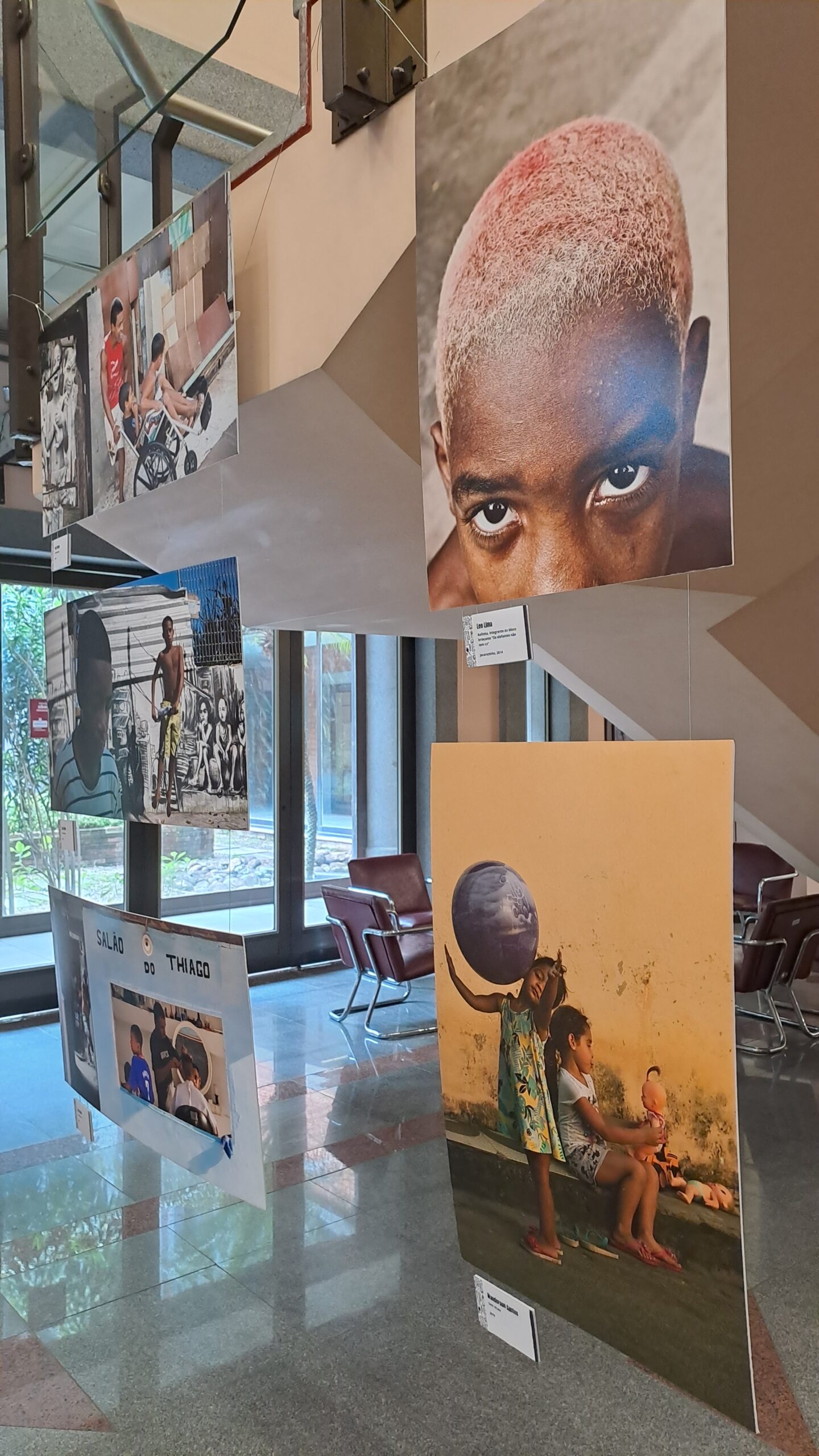
Outras Marés also introduced participantes to photography by the Periphery and Memory Photography Collective, taken by grassroots photographers including Thiago Ripper, AF Rodrigues, and Ratão Diniz. The exhibition can be visited at the Fiocruz Library until April 12.
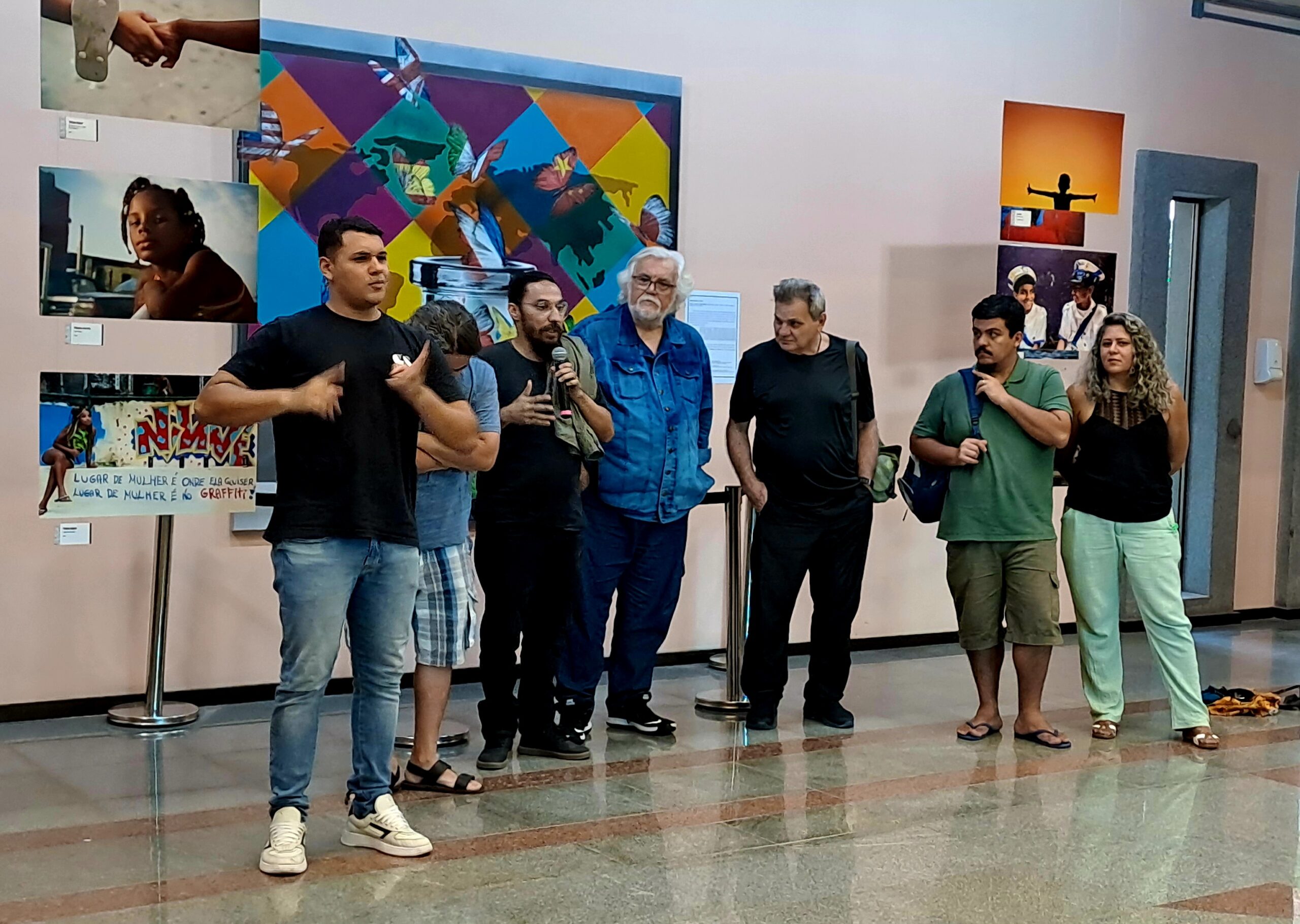
The opening panel included the participation of Sonia Fleury, coordinator of the Marielle Franco Favelas Dictionary and researcher at CEE/Fiocruz; Rodrigo Murtinho, director of ICICT/Fiocruz; Richarlls Martins, executive coordinator of the Fiocruz Plan to Confront Covid-19 in the Favelas of Rio de Janeiro; Cláudia Rose, from the editorial board of the Marielle Franco Favelas Dictionary, director of CEASM, and coordinator of the Maré Museum; and Cristiane Machado, vice-president of Education and Creation at Fiocruz.

Sonia Fleury began by reflecting on the importance of the Favelas Dictionary and highlighting the reasons for its creation.
“It was conceived as a space of knowledge about favelas, be it knowledge produced in universities or cultural spaces, or be it grassroots knowledge, the stories and struggles of favela leaders, so that this information can circulate and reach young people forming collectives, so that they can access the story that History didn’t want to tell, but that we are committed to telling.
When Marielle, who was a supporter and collaborator of the Dictionary, was brutally silenced by her assassination, we committed ourselves to take up all of her causes and share them in the fight for democracy, against the oppression and assassinations that are constantly perpetuated in the favelas [and we renamed the dictionary after her].” — Sonia Fleury
Rodrigo Murtinho pointed out that this was the first public event ICICT had held to resume in-person activities since the pandemic. Furthermore, he made a point of highlighting the power of this meeting and the presence of Renata Souza, Mônica Francisco, and Monica Cunha, considered to be Marielle’s seeds. For him, the assassination of Marielle and driver Anderson Gomes meant the opposite of what the people behind the crime wanted.
“We live in a moment of rebuilding this country and this return is all about Marielle.” — Rodrigo Murtinho
Cláudia Rose spoke about the importance of personal and collective engagement. According to her, we must follow in the footsteps of this Black woman from Maré. She hopes that the favela will increasingly take a stand, as it has done in the past, contesting spaces of power.
“This is our country!… Giving up is not our purpose in life. If we stop at any moment, it is to gather strength to continue on our path of transformation and courage.” — Cláudia Rose
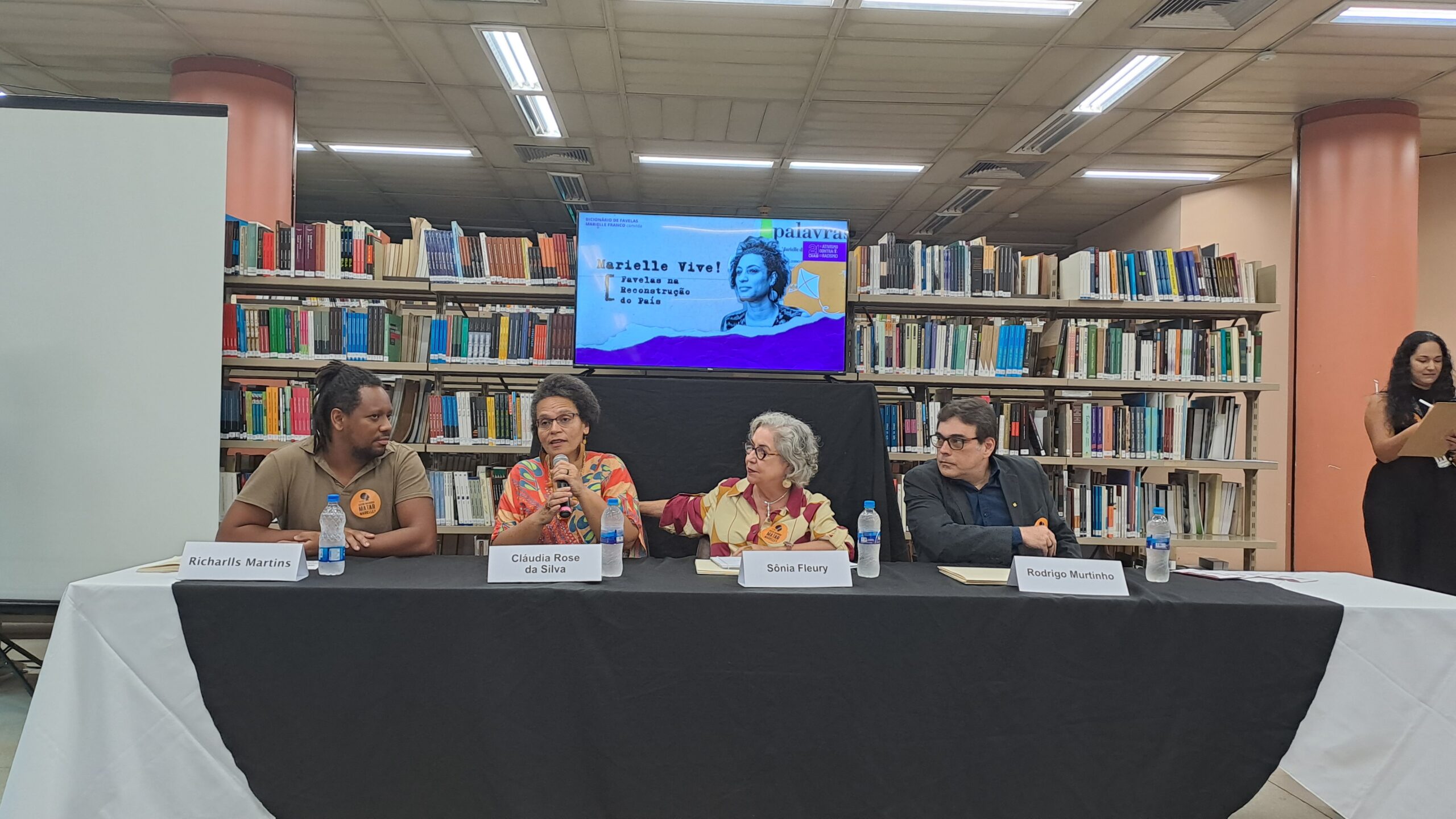
Then came the second panel, From the Favela to Parliament: Rebuilding Brazil. Representing Marielle’s legacy in the political arena were State Deputy Renata Souza, Councilwoman Monica Cunha, and former State Deputy Mônica Francisco. The panel also consisted of Saulo Benicio, president of the Socialism and Liberty Party (PSOL) in Nilópolis, a city in the Baixada Fluminense, representing State Deputy Dani Monteiro.
Renata Souza, who, like Marielle, grew up in Complexo da Maré in the city’s North Zone, began her talk by highlighting the linguistic racism that favela residents suffer when they use the everyday language of their communities. Regarded as less cultured, they are accused of not knowing how to speak. In this scenario, she highlighted the importance of the Favelas Dictionary, which brings the language of Black people and of the periphery to dictionaries. According to her, this helps break the paradigms of linguistic prejudice.
Reflecting on “language, narrative, and creation of discourse,” the state deputy reaffirmed that the term she coined, political femicide, remains the best to characterize the brutal murder of her longtime friend Marielle Franco. Souza highlighted the power of naming things.
“We need to speak out about what happened to Marielle, and in the eyes of the law, whatever isn’t named, whatever isn’t characterized, or categorized, doesn’t exist! We need to state that political femicide exists!” — Renata Souza
She illustrated her argument by citing cases of emblematic women whose assassinations were directly linked to their ideological convictions and political actions, bringing to light the names of women who challenged the established powers with their struggle for social transformation and justice. One example was Dorothy Stang, a missionary and environmental activist who was shot dead in Pará, another was Judge Patrícia Accioli, who “operated against militias and was killed by the State’s bullet, by agents of the State,” said Souza.
Coming to the end of her exposition, Renata Souza commented on the importance of building narratives and on how essential it is that the favela and its grassroots communicators fill the spaces of media production. She reflected on how not having control over one’s own narratives and discourses costs communities dearly, and how in recent years the prevalence of fake news has served as a tool for online engagement, political gender violence, criminalization of poverty, and racism.
“Information frees [us], but misinformation imprisons [us]. And it’s this that’s been happening over the last five years in this country. We need to have our instruments. I come from grassroots communication, I worked for the newspaper O Cidadão in Maré. In order to talk about such a sensitive topic such as communication, it goes without saying that if we are contesting narratives and discourses, we need the instruments to do so.” — Renata Souza
With many tributes and important presentations throughout the event, near the end, Mônica Francisco reflected on Marielle’s representation and on the importance of Black women from the favela in rebuilding Brazil. She asked everyone to research the accomplishments of Black women in elected office. As she concluded her talk, she was moved to tears remembering her friend, which touched everyone in the audience.
“Marielle challenged the powerful when she became the representation and voice of the invisible. Every day they produce our non-existence. We have brought the experience of the favela into government, our ability to cope with the best and the worst. Black women are an institution in this country.” — Mônica Francisco
Monica Cunha also moved those present when she spoke, saying that if she had Angela Davis as a reference—a Black American woman, philosopher and activist—that in the future, in the books and memory of her grandchildren’s generation, she herself, Monica Cunha, would occupy a place of reference. She would be printed on the pages of the books as an activist, a Black elected official, a daughter of Riachuelo, a suburb in the North Zone of Rio, and the mother of a victim of State violence. And she concluded:
“Our purpose is to not allow our memory and our history to be forgotten. We need to tell our story, but tell it our way!” — Monica Cunha
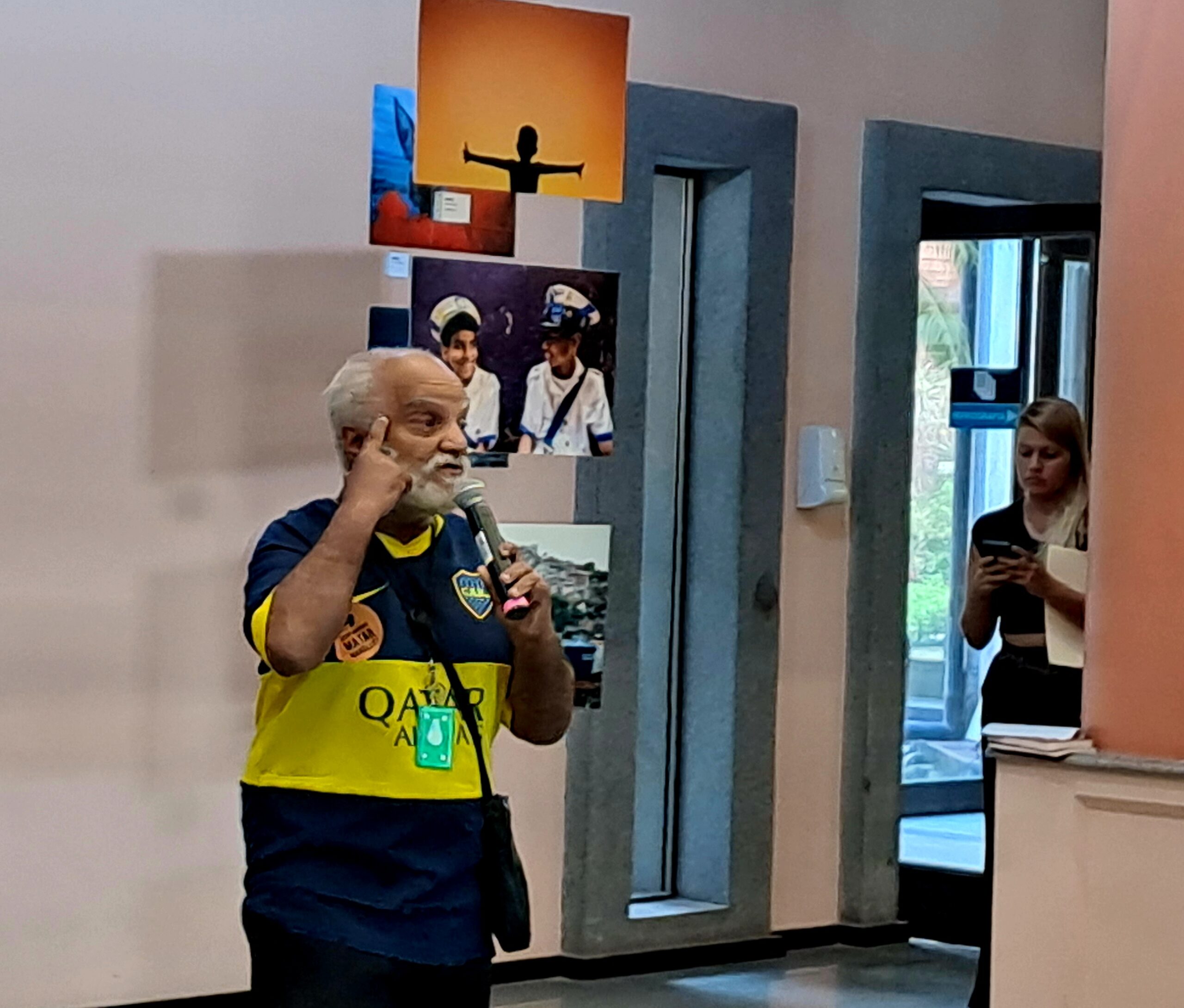
Speaking to RioOnWatch, Monica Cunha said that, for her, the memory of Marielle is materialized in the daily struggle of Black women. She made a comparison between Marielle and her son, Rafael da Silva Cunha, who was murdered by the State. The councilwoman further highlighted the importance of this event taking place at Fiocruz, in an area which lies between the favelas of Manguinhos and Complexo da Maré, Marielle’s home, and in an institution of international renown such as the Oswaldo Cruz Foundation.
“Not letting the memory of Marielle die is turning the mourning into action, as we Black women and family members of victims of State violence are used to doing. To remember Marielle is to remember my son Rafael da Silva Cunha, is to say at every moment that these people have existed… and to have an institution with this reach legitimizing the narrative that says that the favelas matter, that these struggles that Marielle bore matter, is very important to give even more credibility to the discourse that we have always echoed [about human rights].” — Monica Cunha
The event came to a close at around 2pm with reflections from Gastaldoni and Ratão Diniz about the importance of photography and grassroots communication to share the reality, culture, and power of favela territories. Directly afterwards, the event was brought to an end with cultural performances by poet Deley de Acari and self-identified “singer and artivist,” Rachel Barros.
Yesterday, today, and always, the cry Marielle Lives On! echoes through the streets of Brazil, in a struggle that seeks to perpetuate the legislative legacy of the sociologist from the Complexo da Maré. This cry represents movement and renewed hope, despite in 2023 there being #5YearsWithNoAnswer or #JusticeForMarielleAndAnderson. Through this direct attack on democracy, the murderers and the perpetrators of the crime believed that they would silence Marielle. However, they did not imagine that the councilwoman would become an international symbol, that her legacy would live on and would sprout from her seeds, which have taken root in the legislative branch and are blooming in the form of public policies.
